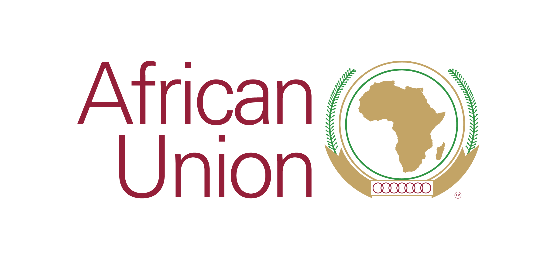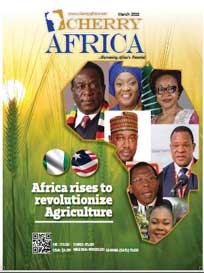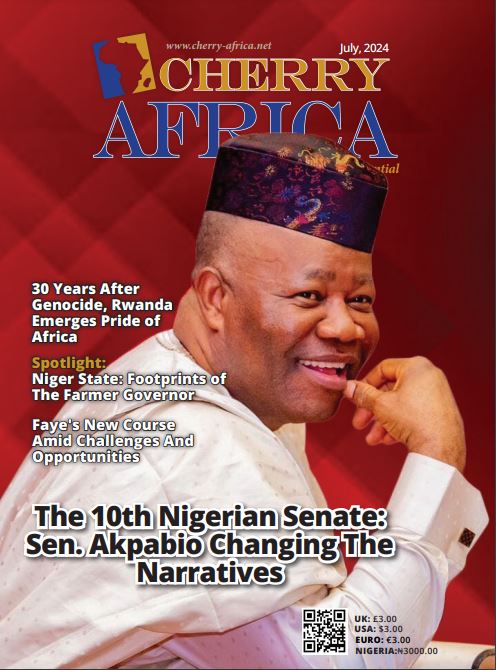The African Union (AU) in collaboration with the Republic of Senegal, and the support of the International Organization for Migration (IOM), and the International Labour Organization (ILO), launched, on the 11th September 2021, the 6th Pan African Forum on Migration (PAFOM6) in Dakar under the theme: “Strengthening Labor Migration Governance in Africa in the context of a pandemic for accelerated socioeconomic development and continental Integration”. The forum’s aim is to provide a more focused engagement with all relevant migration stakeholders including Regional Economic Communities (RECs), AU Member States, the private sector, academia, parliamentarians, the African diaspora community and civil society organizations in Africa and to discuss among others; achievements and challenges of free movement of persons regimes in Africa, and examine the urgency to promote effective labour migration governance.
The PAFOM6 was opened officially by H.E. Madame Aïssata TALL SALL, the Senegalese Minister of Foreign Affairs and Senegalese Abroad, in the presence of H. E. Moise SARR, the State Secretary in charge of Senegalese Abroad. H.E. Madame Aïssata TALL SALL highlighted the need to strengthen governance of the labor migration framework in Africa through measures to be adopted towards socio-economic development and the acceleration of continental integration. “Indeed, the integration of migrant workers in development would promote the development of skills and the establishment of linkages that create value”, she said.
The Minister concluded by calling upon AU Member States to support Senegal address common concerns related to the migration issues during its one-year Chairmanship of PAFOM.
Mrs. Cisse Mariama Mohamed, Director for Social Affairs at the AU Commission, delivered the opening remarks on behalf of H.E. Mrs Amira Elfadil, Commissioner for the Department of Health Humanitarian Affairs and Social Development (HHS). She underlined the importance of the operationalisation of the African Centre for the Study and Research on Migration, Continental Operations Centre in Khartoum & the African Observatory on Migration for evidence-based labour migration policies in Africa and called upon the AU Member States to produce accurate and high-quality labour migration data and statistics, to support the development of evidence-based policies and key decisions.
The Director stressed the need to continuously strive to develop innovative ways to adapt to the new norm brought about by the pandemic; while taking extraordinary precautions and observations of the laid down health safety protocol as provided by our health experts”. The Director noted that over 80% of the labour migration movement is experienced within the continent, and there is need for enhanced collaboration among all AU Member States and stakeholders on issues of labor migration governance and the general human mobility in Africa, to develop sustainable labor migration policy frameworks to enhance predictability in decision making and general operations. “There is need for us to identify the gaps and opportunities that exist within the area of labor migration governance, with the view of advancing sound labour and employment policies to safeguard migrant workers’ rights, protection and access to benefits”, she added.
Mrs. Cisse Mariama Mohamed concluded by emphasizing the need to ensure that necessary policy and legal frameworks are established to strengthen data sharing amongst agencies producing and using labor migration data. “These frameworks and mechanisms are key in improving the collection, utilization and dissemination of relevant migration data and statistics among agencies at national level”, she said.
Ms. Cynthia Samuel-Olonjuwon – ILO Assistant Director-General and Regional Director for Africa in her opening remarks delivered virtually, reiterated the ILO’s commitment to decent work and social justice for all workers, including migrant workers. “The 2019 Abidjan Declaration on Shaping the Future of Work in Africa reaffirms this, along with the ILO’s Strategy on Labour Migration in Africa, a long-term vision for achieving a brighter future for African migrant workers”, said Ms. Cynthia Samuel-Olonjuwon. She underlined the devastating and traumatic impact of COVID-19 on migrant workers, and highlighted that the policy coherence and institutional partnerships with the AU Commission and coordination between stakeholders with a mandate on migration, labour migration and employment policies will be of utmost importance to ensure coherence and results on the ground.
Representative of the IOM, Ms. Aissata KANE, Senior Regional Advisor to the Director General of the IOM for Sub-Saharan Africa applauded the dedication of all member states delegates present in advancing the migration agenda in their respective countries and regions, even in the most difficult times and as the world faces the challenges of the pandemic. “None of this would have been possible without the leadership of the African Union Commission and the active engagement of its Member States”, said Ms. Aissata KANE. She noted that the theme of PAFOM this year is relevant as there is no doubt that the COVID-19 pandemic has disproportionately affected developing economies, particularly in Africa, and the closure of borders and the socio-economic effects of COVID-19 have had a particularly dramatic impact on the lives of migrants.
During the two-day Forum, participants discussed, among others, the following issues:
· Supporting Member States (MS) and Regional Economic Communities (RECs) in strengthening Labor Migration in Africa: Overview of the ongoing Labor Migration Initiatives and Programs including the Joint Labor Migration Program in the continent;
· The Impact of the COVID-19 Pandemic on Labor Migration Governance in Africa: Challenges, Lessons learnt and opportunities;
· Strengthening national, regional and interstates collaboration and interstates dialogue on labor migration Governance in Africa;
· Strengthening labor migration research, data and statistics for evidence based policy formulation and implementation in Africa;
· Promoting protection of migrant workers in Africa: Strengthening the protection and policy framework of African Migrant workers in the continent and beyond;
· Promoting skills development, mobility, mutual recognition of skills, qualifications and competencies of migrant workers in Africa; and
· The Nexus between Labor Migration and mobility and the African Continental Free Trade Area















